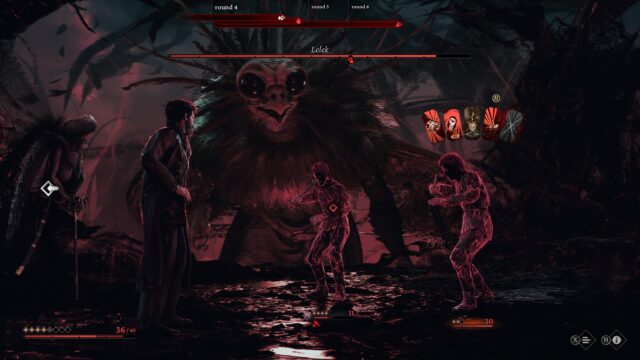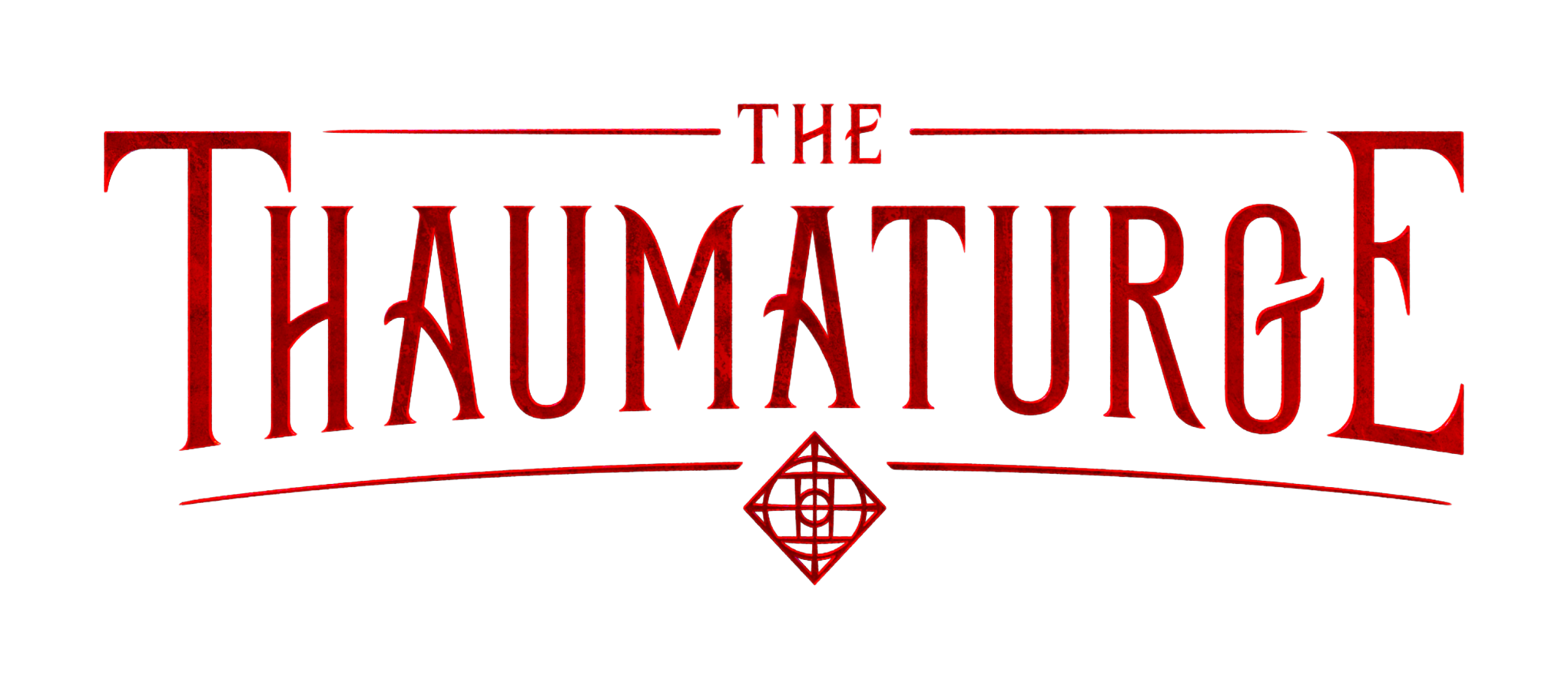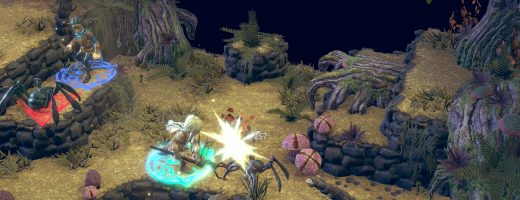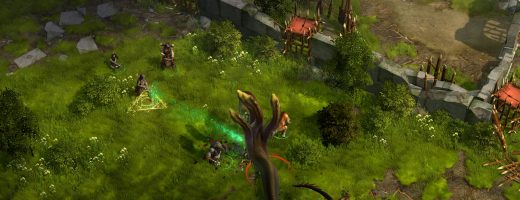The Thaumaturge Review
Who Ya Gonna Call?
History rarely delineates into clean, digestible moments in time. With the benefit of hindsight, it’s easy to look back at the turn of the twentieth century as a pivotal turning point in European history. For Poland, especially the city of Warsaw, it was a period of heightened political unrest under Russian rule. It’s also what developer Fool’s Theory seems to be most interested in with The Thaumaturge. For all the mysticism and spiritualism at the heart of the gameplay, the developers seem most interested in capturing the lost city, its denizens, and the culture it had. Between all that is a competent turn-based RPG that rushes towards a half-baked conclusion.
Set in 1905, The Thaumaturge follows Wiktor Szulski as he returns to Warsaw in the wake of his estranged father’s death. Wiktor is a thaumaturge, a mystic that is able to commune with spirits known as Salutors. His father was also a thaumaturge and leaves him a Black Grimoire in his will, though it has mysteriously gone missing. Wiktor begins a search for the tome, leading him through the echelons of Warsaw’s upper class as well as its harrowing slums and organized crime. Along the journey he meets up with actual historical figures, such as the enigmatic Rasputin, who has goals to cozy up to the Russian Royal family.
Much of the entertainment in The Thaumaturge comes from its characters and their interactions. Wiktor’s relationships feel refreshingly lived-in despite his prolonged absence. As he begins to reconnect with those from his past, a better shape of who he is and where he grew up takes hold. Warsaw is positioned as more than just a backdrop and the game rarely misses an opportunity to squeeze in some wistful admiration for the city. While exploring, Wiktor can encounter numerous points of interest that mechanically do little more than provide a chunk of experience points but also present a literal sketch of a scene that provides some minor context and flavor: Visiting the tavern with friends, dropping by the candy shop of Wiktor’s youth, watching fishermen off the pier, etc. The developers really want to push players to explore the city as most of the things to come across will provide some experience. Especially early on when most of the experience points players will get are from examining the minutia of the city, whether it be posted Russian ordinance or a discarded piece of seditious material.
It’s a shame that despite all the attention to detail and the well-realized characters the story can’t keep pace. Beyond Wiktor’s father’s death, the search for the Black Grimoire, and the political state of Warsaw, much of the story material revolves around hunting for more Salutors and bringing them under his control. This is accomplished by finding the person to whom the Salutor has attached to and removing the Flaw, a characteristic or personality trait that drives the character that they feed off of. In play, this generally involves running around random scenes picking up clues until enough evidence has been collected to force the character to acknowledge their flaw so that Wiktor can add it to his own psyche, transferring the Salutor to him. Unfortunately this involves very little deduction on the player’s part, instead Wiktor can press a button to highlight points of interest and once all of them have been gathered the game will draw a conclusion all its own. This also tends to tie into the game’s choice system, as many times the player will be confronted with gaining a Salutor through underhanded means or breaking a character’s trust. These decisions had surprisingly impactful consequences, especially in regards to how characters react to Wiktor in the later stages of the game. They also do a good job of recontextualizing decisions made throughout the game. The ending still winds up feeling sloppy, as characters quickly move from place to place and other characters kind of just show up with little explanation. This is a game with different endings so the potential for more satisfying conclusions is possible, but that doesn’t ultimately negate some of the loose writing that carries the game’s final act.

Each battle to gain a new Salutor is a multi-part affair with the rogue Salutor providing support for the enemies.
When not exploring the city or interacting with its denizens, Wiktor will be getting into fights. In The Thaumaturge, combat is a turn-based affair with the player controlling both Wiktor and his selection of Salutors. Though players will always have access to all collected Salutors, only one can be used at a time. What starts out as an interesting puzzle slowly runs out of room to evolve. Combat plays out with everyone’s turns visible on a time track. Each action costs a different amount of time which becomes important when attempting to play around major targets and their next moves. On top of attacks that directly targets health, certain attacks can deal damage to Focus, a meter both Wiktor and enemies have that when depleted leaves the character open to a Strong attack. Combined with numerous status ailments and buffs, combat centers around mitigating enemies attacks while depleting the enemies’ ranks. This is straightforward until enemies start getting set buffs at the beginning of the fight that can only be counteracted by depleting Focus or attacking with a specific Salutor.
At first glance this sounds like a Pokémon-esque weakness system but never materializes as such. Once counteracted, these buffs the enemies begin with are cancelled for the remainder of the fight barring boss fights. This means that all enemies once again become susceptible to the same tactics, so inevitably combat boils down to the most efficient path to ending the fight. This issue persists with Wiktor’s combat sequences. As Wiktor develops, new skills can be slotted into existing attacks. However, these activate on the second or third ability usage, pushing players to find an attack they like and sticking with it to get the most out of Wiktor’s most powerful effects. Even newly unlocked Salutors, while offering the biggest change-up in how to approach combat, tend to slot into specific roles in combat, meaning players will end up using one or two of them outside of specific cases where the others are needed. Boss fights tend to be more difficult but not much different otherwise, really only changing up the number of waves of enemies to fight and having a specific gimmick to play around. There are no random encounters so the player never quite gets bogged down in that way. This does have the side effect of them needing to come up with reasons for many of the less consequential fights, so there’s plenty of disgruntled union and dock workers who will start a fight at a moments notice.

The Thaumaturge’s skill trees are literally straightforward and are limited by the number of skill points and Salutors acquired.
Character development is another axis that isn’t particularly interesting. Skill points can be spent on one of the four Dimensions: Heart, Deed, Mind, and Word. Each of these has a series of nodes that unlocks linearly with the latter parts of the tree locked behind obtaining specific Salutors. In theory there is player choice on which Dimensions to choose, these do unlock additional dialogue choices and the ability to cancel out stronger enemies’ buffs with Salutor attacks. In reality, it was never really clear when one Dimension would be more useful than another in a conversation and combat checks did not become an issue until the very end of the game. This did have the side effect of many of the game’s dialogue choices near the end not being available, but by then it was too late to pivot out of that strategy.
The Thaumaturge does make the best use of its modest budget. The city is lovingly rendered and feels pretty full and bustling for the isometric perspective, convincingly selling its grimy and rainy veneer. Character models are a little stiff, especially during close-up, but the vocal performances are all pretty well done. The Salutor designs are all pretty great, with some being terrifying and others being kind of goofy but all being rather unsettling. The music is mostly incidental, though some of the more classical-sounding stuff leaves a better impact and the battle theme isn’t too shabby. The game also performed well enough on Steam Deck and fit the handheld format comfortably.
There’s a lot to appreciate about The Thaumaturge and that’s the stuff that will stick around. The weaknesses in the combat prevent some cool ideas from ever fully taking off. The rushed ending, whether the result of running out of time during development or an awkward playthrough, means the plot trips at the finishing line. But the uniqueness of the setting goes a long way toward making the game an interesting sell and the characters are fun to spend time with. So while far from perfect, there’s enough care in this project to make it a worthwhile visit.
Disclosure: This review is based on a free copy of the game provided by the publisher.


A very unique setting
Some fun to be had with the game's combat
The game's combat gets repetitive by the end
The story starts more promising but the final act under delivers







Recent Comments